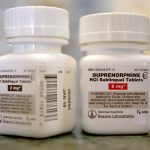Drug courts in the United States routinely fail to provide adequate, medically-sound treatment for substance use disorders, with treatment plans that are at times designed and facilitated by individuals with little to no medical training. In a report published today by Physicians for Human Rights (PHR), researchers found that drug courts – designed to reduce incarceration and provide necessary treatment – struggle to meet medical and human rights standards.
“Our study shows that while drug courts promise treatment rather than punishment, they face serious challenges in living up to that promise,” said PHR’s Christine Mehta, one of the paper’s lead authors. “Drug courts regularly set participants up for failure. Few communities have adequate treatment facilities, insurance plans often won’t finance effective treatment programs, and the criminal justice objectives of drug courts often overrule the medical needs of the patient in ways that threaten the rights and health of participants.”
PHR’s report – “Neither Justice nor Treatment: Drug Courts in the United States” – is based on interviews with health care professionals, social workers, judges, lawyers, drug court staff, and drug court participants, focusing on the U.S. states of Florida, New Hampshire, and New York.
“Unfortunately, drug courts often prioritize punishment over treatment,” said PHR’s director of programs, Dr. Homer Venters. “For instance, instead of treating relapses as a natural part of the recovery process, some drug courts punish participants for relapsing, compromising their successful recovery. What’s more, some drug courts require total abstinence from substance use, including prescribed medications, and refuse to allow medication-assisted treatment, despite the fact that treatment for opioid use disorder often requires long-term medication. Such approaches are counterproductive and unsupported by evidence.”
Among its recommendations, PHR urges federal and local officials to enact clearer standards for drug courts, defund drug courts that disallow medication-assisted treatment, decriminalize the possession of drugs for personal use, ensure government health insurance plans cover comprehensive treatment, and put in place supportive services to make treatment plans more effective.
“The U.S. federal government has historically failed to adopt harm-reduction strategies in place of draconian criminal justice methods that treat substance use disorders as crimes,” said PHR’s Dr. Venters. “In such a climate, drug courts and other diversion programs must be reformed and backed up by sound science. As it is, the United States is pushing overly-punitive, dysfunctional drug policies that are harmful to health and human life.”

